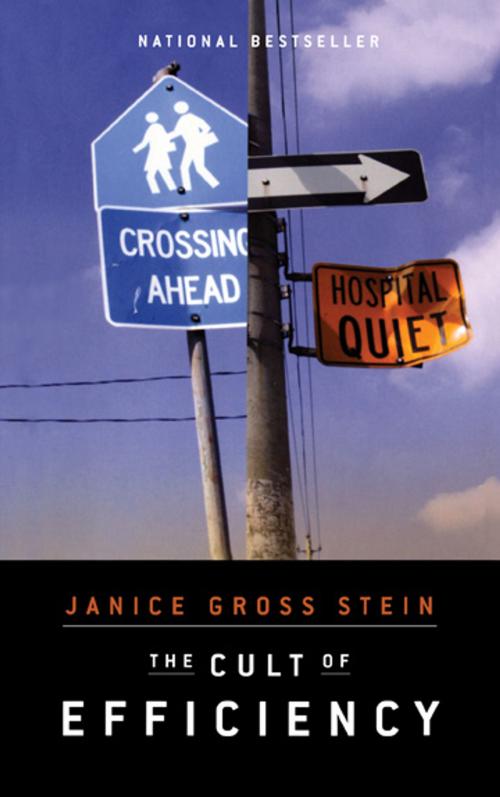The Cult of Efficiency
Revised Edition
Nonfiction, Social & Cultural Studies, Political Science, Government, Communism & Socialism, Public Policy| Author: | Janice Gross Stein | ISBN: | 9780887848803 |
| Publisher: | House of Anansi Press Inc | Publication: | November 1, 2001 |
| Imprint: | House of Anansi Press | Language: | English |
| Author: | Janice Gross Stein |
| ISBN: | 9780887848803 |
| Publisher: | House of Anansi Press Inc |
| Publication: | November 1, 2001 |
| Imprint: | House of Anansi Press |
| Language: | English |
We live in an age dominated by the cult of efficiency. Efficiency in the raging debate about public goods is often used as a code word to advance political agendas. When it is used correctly, efficiency is important: it must always be part of the conversation when resources are scarce and citizens and governments have important choices to make among competing priorities.
Even when the language of efficiency is used carefully, that language alone is not enough. Unilingualism will not do. We need to go beyond the cult of efficiency to talk about accountability. Much of the democratic debate of the next decade will turn on how accountability becomes part of our public conversation and whether it is imposed or negotiated.
Janice Gross Stein draws on public education and universal health care, locally and globally, as flashpoints in the debate about their efficiency. She argues that what will define the quality of education from Ontario to India and the quality of health care from China to Alberta is whether citizens and governments can negotiate new standards of accountability. The cult of efficiency will not take us far enough.
We live in an age dominated by the cult of efficiency. Efficiency in the raging debate about public goods is often used as a code word to advance political agendas. When it is used correctly, efficiency is important: it must always be part of the conversation when resources are scarce and citizens and governments have important choices to make among competing priorities.
Even when the language of efficiency is used carefully, that language alone is not enough. Unilingualism will not do. We need to go beyond the cult of efficiency to talk about accountability. Much of the democratic debate of the next decade will turn on how accountability becomes part of our public conversation and whether it is imposed or negotiated.
Janice Gross Stein draws on public education and universal health care, locally and globally, as flashpoints in the debate about their efficiency. She argues that what will define the quality of education from Ontario to India and the quality of health care from China to Alberta is whether citizens and governments can negotiate new standards of accountability. The cult of efficiency will not take us far enough.















